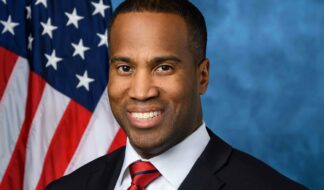Letter to the Editor: Laws Protecting LGBTQ+ Students Guide Mental Health Providers, But Support Is Key

Dear Editor,
As mental health providers who practice in both clinical and school-based settings, we wanted to further elaborate on a recent op-ed relating to outing students to parents on October 5, 2022 (Op-Ed: Not Outing Kids to Their Parents Is in the Best Interest of LGBTQ+ Students). As was shared, ideally, educators and mental health providers would work alongside families and educators in supporting LGBTQ+ youth to meet students needs on a case-by-case basis. It was also acknowledged in that article that not all family and/or home environments are physically or psychologically safe for youth to come out.
To supplement that op-ed, we would like to share guidance of ethical and legal obligations that uphold LGBTQ+ youth rights within school and community settings. Ethical requirements (i.e. beneficence, respecting the rights and dignity of others, and nonmaleficence, do no harm) and legal mandates for health providers (inclusive of mental health) highlight the importance of ensuring physical and psychological safety and security for youth. For instance, educators, health and mental health providers are mandated reporters and have a "duty to warn." This means that such professionals have an obligation to report any instances of self-harm, harm toward others, and child abuse or neglect.
However, with respect to limits of confidentiality and privacy guidelines, professionals across settings are encouraged to only share essential information and are limited in the amount and types of information they are allowed to share with others. According to the American Civil Liberties Union (ACLU, 2022), “It’s against the law for school officials to disclose a student’s sexual orientation or gender identity to parents or other school staff, even if the student is open about their sexual orientation or gender identity with friends at school. School officials may think they’re doing the right thing, but revealing a student’s sexual orientation or gender identity to their parents not only violates the student’s privacy rights, but can open an LGBT child to hostility, rejection, and even violence from their parents.”
In addition to the above guidelines, there are additional laws that protect the rights of LGBTQ+ students. Please find a summary below:
- Title IX: Requires all schools that receive public funding to proactively enact policies and procedures that prevent discrimination based on gender or sexual orientation.
- The Equal Access Act: Prohibits discrimination against students who want to participate in and form extracurricular clubs.
- The Family Educational Rights and Privacy Act protects personal information about students in school records — including sexual orientation and gender identity — and in most circumstances prohibits release of this information without consent.
- The First Amendment of the U.S. Constitution protects the right of students to free speech and freedom of expression, including expression of one’s gender identity or sexual orientation. The 14th Amendment of the U.S. Constitution guarantees that no state will “deny to any person within its jurisdiction the equal protection of the laws.”
While we are guided by these legal and ethical tenets in protecting our LGBTQ+ youth, what’s most important is that we continue showing up professionally and personally in spaces to support our youth the best we can.
Thank you so much for your time and dedication to such a vital matter.
Sincerely,
Lauren Mangus, PhD, LP, NCSP and Sarah Kiperman, PhD, LP, NCSP









